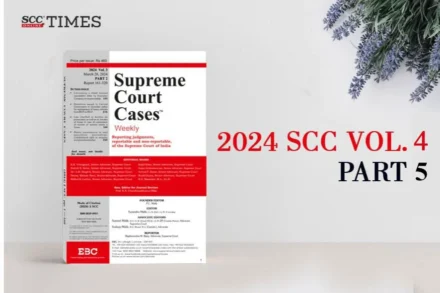
2024 SCC Vol. 4 Part 5
Arbitration and Conciliation Act, 1996 — Ss. 34 and 37 r/w Ss. 2(4) and 16 — Jurisdiction of arbitrator to adjudicate under

Arbitration and Conciliation Act, 1996 — Ss. 34 and 37 r/w Ss. 2(4) and 16 — Jurisdiction of arbitrator to adjudicate under
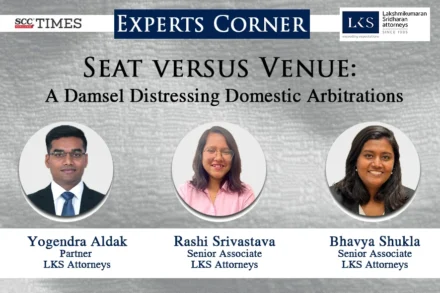
by Yogendra Aldak†, Rashi Srivastava†† and Bhavya Shukla†††
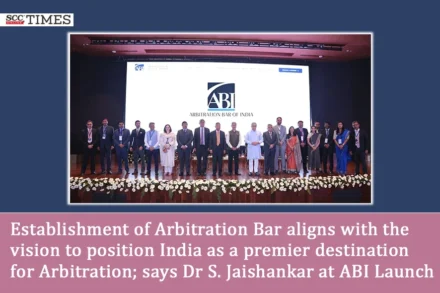
The legal landscape of India witnessed a momentous occasion with the official inauguration of the Arbitration Bar of India (ABI) on May 11, 2024, at Bharat Mandapam, New Delhi.

The Court opined that all nine contracts are related to same project and if it is accepted that there is an Arbitration Clause only in five contracts, then parties will have to be relegated to civil proceedings, which will lead to multiplicity of disputes, delay in adjudication and possibility of conflicting rulings.
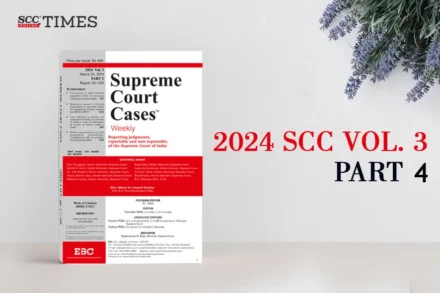
Arbitration and Conciliation Act, 1996 — Ss. 34 and 5: Principles summarised re scope of interference by Court under S. 34. Supervisory,

“Imposition of costs in cases of frivolous litigation is essential to maintain the integrity, efficiency, and fairness of the judicial system. By deterring abuse of the legal process, promoting judicial efficiency, and upholding the principles of fairness and justice, cost imposition serves to safeguard the rights of individuals, protect the integrity of the legal system, and bolster public confidence in the administration of justice.”
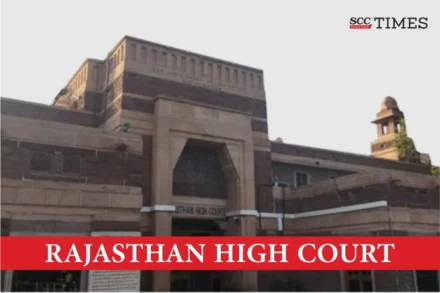
Rajasthan High Court decided to entertain the appeal due to the significant question of the application’s maintainability.
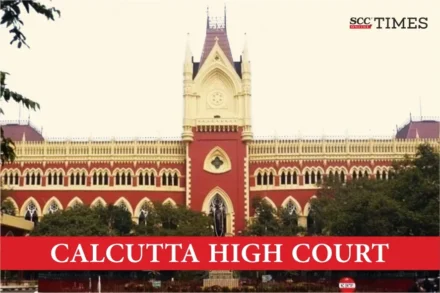
Calcutta High Court applied the amended Section 31(7)(b) for determining the interest rate after considering the silence of the Award on the interest issue and the subsequent execution proceedings filed after the 2016 amendment.
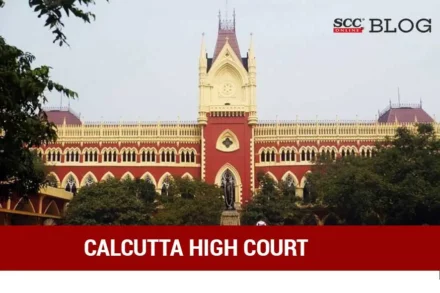
The Calcutta High Court emphasised on the doctrine of “kompetenz-kompetenz”, granting the Arbitral Tribunal the authority to rule on its own jurisdiction, including the existence and validity of the arbitration agreement.

The Calcutta High Court opined that the onus is on the award-holder to provide irrefutable evidence of delivery, and any doubt in this regard favors the award-debtor.

“Even if the Registry declines registration, the Court has ample power to condone the delay in re-filing. This power has to be exercised liberally although cautiously to avoid delay by an unscrupulous litigant.”

“The limitation for filing an application will start to run from the day when the cause of action accrues regardless of the existence of an arbitration clause.”
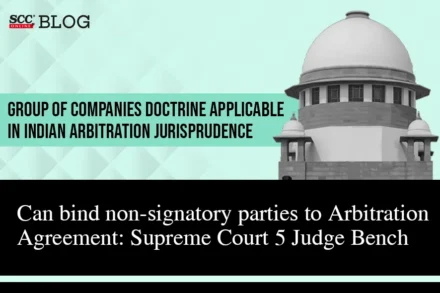
“The approach in Chloro Controls India Private Limited v. Severn Trent Water Purification, (2013) 1 SCC 641 to the extent that it traces the group of companies doctrine to the phrase ‘claiming through or under’ as given under Section 8 of the Arbitration Act was erroneous and against the well settled principles of contract in commercial law”.

Calcutta High Court emphasized the distinction between vigilant litigants and those contributing to unnecessary delays in the arbitration process, ultimately ruling in favor of the petitioner.
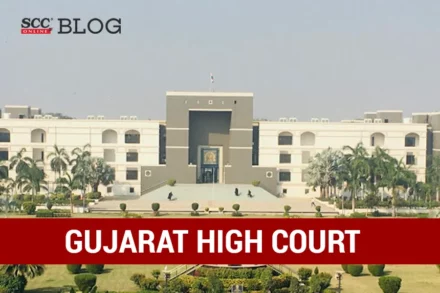
A mere fact that the nominated Arbitrator had been a member of the Bench of the Court, which had decided the validity of the interim order passed by the then Arbitral Tribunal, it cannot be held that the “Arbitrator has previous involvement in the case”.
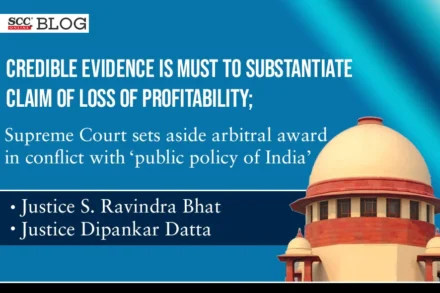
“The credibility of the evidence is the evidence of the credibility of claim for loss of profit”.

“The decree holder was not required to await the outcome of the objections filed under Section 34 of the Arbitration and Conciliation Act, 1996, however, if it did choose to remain under a self-imposed embargo, then it can’t demand interest.”

While cautioning the parties to the Arbitration proceedings, Calcutta High Court stated that parties should be vigilant in applying for extensions within the prescribed periods and dismissed the petitions seeking an extension of the arbitrator’s mandate.
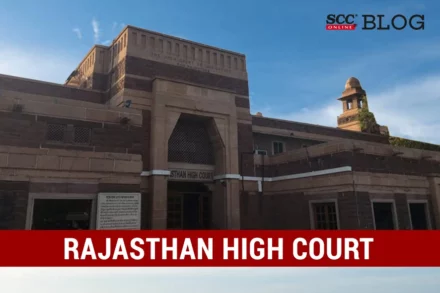
“The Court observes that the ‘contrary indicia’ is clearly reflected in the present case, because the seat was mentioned as Bikaner and venue was mentioned as New Delhi.”
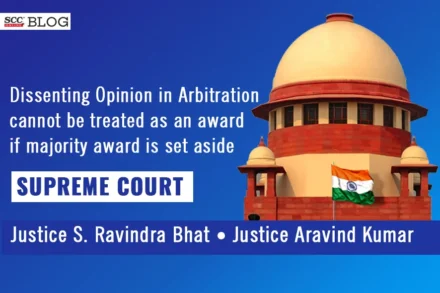
“Dissenting opinion of arbitrators might provide useful clues during procedural issues, which forms a critical part when the hearings are challenged”.